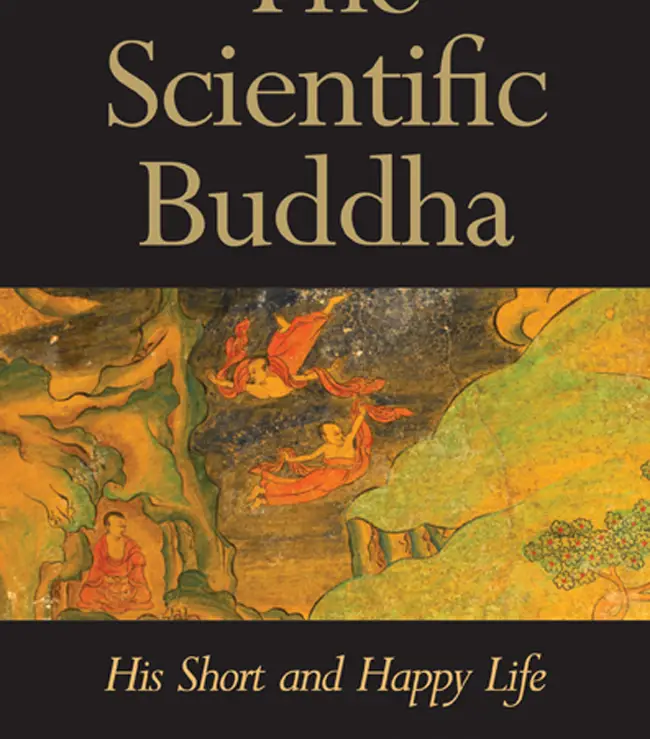March 1st, 2022
Speaking on behalf of the popular current movement among (mainly western) intellectuals to ‘naturalize’ Buddhism, renowned philosopher and apologist for a scientistic, ‘materialist’ approach to western metaphysics, Owen Flanagan, takes the same approach to interpreting Buddhist ideas:
“I have always been a fan of comparative philosophy, long convinced that there are certifiably great non-Western philosophical traditions, … I thought this an opportune time to speak to an audience of secular-minded thinkers who are impressed by science and allergic to supernaturalism, a suitable deflated secular Buddhism, what I call “Buddhism naturalized.”…. . Is it possible to take an ancient comprehensive philosophy like Buddhism, subtract what is now by our own epistemic lights unwarranted, and have a worthwhile philosophy for twenty-first century scientifically informed secular thinkers? I think so”.
—However, Donald Lopez, author of The Scientific Buddha (and who, unlike Flanagan, is an actual Buddhist scholar) thinks NOT. He offers a well-conceived counter-point to the currently popular ‘naturalization project’ in Buddhist studies (exemplified by modern western thinkers like Flanagan, Susan Blackmore, Steven Batchelor and others) to expropriate ideas from the Buddhist tradition that (when taken out of context and placed in a naturalistic paradigm) support an atheistic, scientific, and materialistic (in short, a ‘naturalized’ and ‘westernized’) version of Buddhism. While in certain respects a creative way to reinterpret valuable elements of Buddhism for contemporary western audiences, Lopez writes, this kind of naturalization project is still an extension of traditional colonial imperialism and missionary conversion (albeit in a secular, intellectualized guise) that devalues Buddhism’s authentic spirit and intended message –which has always been deeply religious, anti-materialistic, and replete with supernatural implications. For 19th century western missionaries, conquerors, and colonizers in Asia “Science would serve as a tool for the missionary and as a reason for conversion.”, he explains, “Later, science would be portrayed as the product of a more generalized ‘European civilization’. Something that this civilization would take around the world; the vehicle for the journey that was colonialism.” and “in order to make this Buddhism compatible with science, it would seem the identity of the Buddha must be severely delimited, eliminating much of what has been deemed essential…. by exalted monks, nuns and ordinary people who have gone for refuge to the Buddha over the course of more than 2000 years” Jessica Frazier makes this same observation regarding the influence of western naturalism on other South Asian philosophical traditions from the 19th century onward:
“the modern universities of Calcutta and Delhi trained students in classical European thought and applied sciences and would eventually give answers to cosmological questions with the language of western physics rather than Hindu philosophy……This was one way in which conquering Europe colonized the landscape of thought as well as the geographical terrain of the subcontinent.”
And regarding modern western science, writes Henry Vyner,:
“our attempts to understand Buddhist mind-science have been, to date, a well meaning but nonetheless self-limiting, exercise in scientific colonialism. Modern science has virtually ignored the Buddhist science of the stream of consciousness, and it has done so despite the fact that it is the source of Buddhism’s wisdom and meditative technologies.”
Lopez suggests that, instead of extracting isolated themes and decontextualized secular concepts to support a “naturalized” western interpretation of Buddhist metaphysics, cosmology, and psychology, we should view Buddhism as an anti-western alternative to the worldview offered by western science and secular humanism. This view respects Buddhism’s cultural legacy by viewing it on its own terms, rather than as a ‘resource’ for contemporary western scholars to colonize and plunder in the service of their own projects. Appreciating Buddhism as an antithesis to the western paradigm in this way may also help western scholars understand their own traditions better by providing a much-needed vantage-point from which to critique many of the west’s long-held, deeply entrenched, and rarely challenged cultural assumptions and prejudices—one of the most egregious being its dogmatically assumed and rarely questioned scientism and materialism.
In contrast to less subtle attempts by other western thinkers of this imperialist stripe like Steven Pinker (in recent work like Enlightenment Now), who use the naturalist stance to simply exalt the modern western intellectual tradition while demeaning all pre-modern, spiritually grounded, non-western thought in its entirety, The Evolution of God by Robert Wright, a rare evolutionary psychologist who is also amenable to spiritual-religious ideas (particularly Buddhism, about which has also written/spoken extensively), seeks to naturalize religious belief in more sympathetic terms. Wright’s book is a fascinating historical attempt to explain religious belief and practice (particularly the Abrahamic faiths in the west) in terms of evolutionary game theory, and to explain how the success of these religions is attributable to religion’s effectiveness at improving social behavior and relationships by ameliorating conflicts and divisions—which it accomplishes by turning zero-sum ‘games’ in society (of the win/lose, either/or, us/them, kill- or-be-killed variety) into non-zero-sum games (of the both/and, ‘everybody wins’, ‘we all go home happy’, variety). Concepts like universal brotherhood and transcendent morality/justice, which entered western society largely through the Judeo-Christian-Islamic intellectual tradition and then informed our current secular ethical-social-legal institutions, played this role by transforming divisive zero-sum kinds of social interactions into cooperative non-zero-sum kinds, in which huge complex multi-textured societies manage to live/trade/work/and even love together in elaborately interdependent ways.
He concludes, therefore, that religion has played an important evolutionary role in our species’ survival (a position with which even arch-naturalist Richard Dawkins might agree) but then surprisingly goes even farther, suggesting (in a spirit somewhat similar to philosopher Thomas Nagel, an atheist-naturalist-turned-burgeoning-panpsychist in Mind and Cosmos) that the overwhelming effectiveness of this evolutionary dynamic implies not only the possibility that religious-spiritual claims contain some element of genuine truth (a revolutionary-enough departure from conventional naturalist wisdom), but also that some version of the grand cosmic design offered by the great religious and metaphysical worldviews might be somehow written into the very nature of physical evolution (encoded in the laws of physics or our DNA?) giving evolution a transcendent (supernatural?) purpose (a teleology) that directs the course of evolution itself! He writes:
Alarmed by this, several of Wright’s prominent naturalist colleagues have concluded that while Wright’s conventional evolutionary thesis has much to recommend it, his attempt to shoe-horn spiritual, transcendent, or teleological worldviews into a much more scientifically rigid materialist one is ultimately futile, and tries to wed concepts and visions that are irreconcilable with one another. Nonetheless, this kind of intellectual phenomenon seems to be emerging with increasing frequency in the interdisciplinary discourse of contemporary ideas. Everywhere in current Western philosophy of mind, psychology and consciousness studies—and even in cognitive science, physics and cosmology – new theories are emerging that attempt to stretch the conceptual boundaries of a formally rigid, orthodox brand of science to make room for phenomenon like consciousness, freewill, beauty, value, meaning and spirituality in the universe.
This may be a result of the modern Western naturalist paradigm becoming increasingly aware of its intractable contradictions and unworkable limitations, and now awkwardly trying to expand its intellectual purview. While this is a good start, my guess is that the scientific-naturalist worldview will have to be abandoned or changed much more radically for our self-understanding to deepen in a coherent and effective way. Western Enlightenment science, as many of its postmodern interlocuters have observed, was conceived as an effort to dominate nature and human nature, and scientific naturalism as a worldview was developed as an extension of this project. The imperialistic aspirations and missionary zeal evident in efforts of proponents of contemporary scientism-naturalism (like current naturalist interlocuters of Buddhism) to subsume all human knowledge and experience within its reductive parameters, is a motivation that continues to undermine its ability to do justice to the complex dimensions of experience that it attempts to understand.
We hope you enjoy our articles. Please note, we may collect a share of sales or other compensation from the links on this page. Thank you if you use our links, we really appreciate it!



